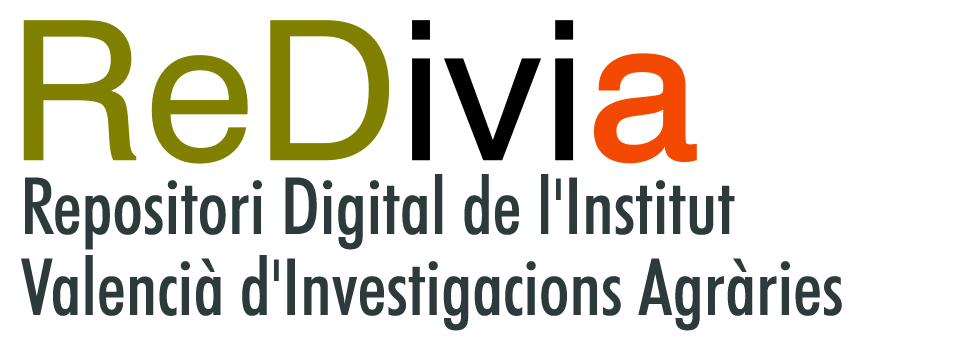Seminario científico: "Integration of metabolomics with physiological data to characterize the response of citrus to combined abiotic stress conditions" - IVIA
Col·laborem amb
Origen i funcions
L'Institut Valencià d'Investigacions Agràries (IVIA) és una entitat autònoma de la Generalitat, amb personalitat jurídica pròpia, creada per la Llei 4/1991 de la Generalitat Valenciana de 13 de març.
L'IVIA té al seu càrrec els fins propis de la Generalitat Valenciana d'impulsar la investigació científica i el desenvolupament tecnològic en el sector agroalimentari valencià i d'integrar aquesta contribució al progrés de la ciència agrària en el sistema de relacions de col · laboració i cooperació propi de la activitat investigadora.
Encara que la promulgació d'esta llei atorgà al nostre institut l'estatus jurídic actual, no suposà, en sentit estricte, el seu naiximent com a organisme investigador. El mateix preàmbul de la llei així ho expresa, en referir-se a la transferència del Centre Regional d'Investigació i Desenvolupament Agrari de Llevant (CRIDA-07) a la Generalitat Valenciana en 1984. Este Centre, a la seua vegada, fou hereu d'altres institucions i així ho detallà recentment el Dr. Salvador Zaragoza en el seu llibre Origen y actividades del Instituto Valenciano de Investigaciones Agrarias (1868-2000).
L'IVIA i la Universitat de Florida col·laboren en l'ús de brassionesteroides per a combatre i retardar la infecció per Huanglongbing (HLB)

Un estudi recent publicat en la revista Plants per investigadors del Institut Valencià d'Investigacions Agràries (IVIA) i la Universitat de Florida (UF) ha demostrat que el tractament amb...
Investigadors de l'IVIA participaran en la jornada “Revolució agraria amb tecnologies disruptives” dins el programa Innotransfer

La inteligencia artificial i la digitalitzación han revolucionat la forma en què es gestionen els processos agrícoles. Actualment, els professional de l'agricultura poden monitoritzar eficientment...
Investigadors del Centre de Tecnologia postcollita (CTP) de l'IVIA participen en una monografia sobre protocols actualitzats per a l'envasament d'aliments

Els investigadors del Centre de Tecnologia postcollita (CTP) de l'IVIA, Prof. Lluís Palou i Dra. María Bernardita Pérez-Gago són els autors del capítol titulat “Antifungal Activity of Edible Films...
Ves enrere Seminario científico: "Integration of metabolomics with physiological data to characterize the response of citrus to combined abiotic stress conditions"
Seminario científico: "Integration of metabolomics with physiological data to characterize the response of citrus to combined abiotic stress conditions"
Ponente: Dr. Vicent Arbona. Dept. Ciències Agràries i del Medi Natural, Universitat Jaume I (UJI)
Lugar: Salón de actos del IVIA
Fecha: 10 de marzo de 2017. 13:00 h.
Resumen:
In a global climate change scenario different abiotic stress factors are predicted to act simultaneously constituting a unique adverse environmental condition affecting plants in a specific manner. In the Mediterranean basin, all predictions conclude that severe water shortage and high temperatures will be the predominant stress conditions in the near future. Therefore, the combined action of water stress and elevated temperatures has been tested in different citrus rootstock genotypes and their effect evaluated from the physiological and metabolic points of view. The integration of both data sources allows a more precise characterization of the physiological tolerance responses and the associated metabolic rearrangements, pointing to particular plant processes that could be the target for biotechnological improvement.
Puede ver la grabación del Seminario en nuestro canal de vídeo.



















